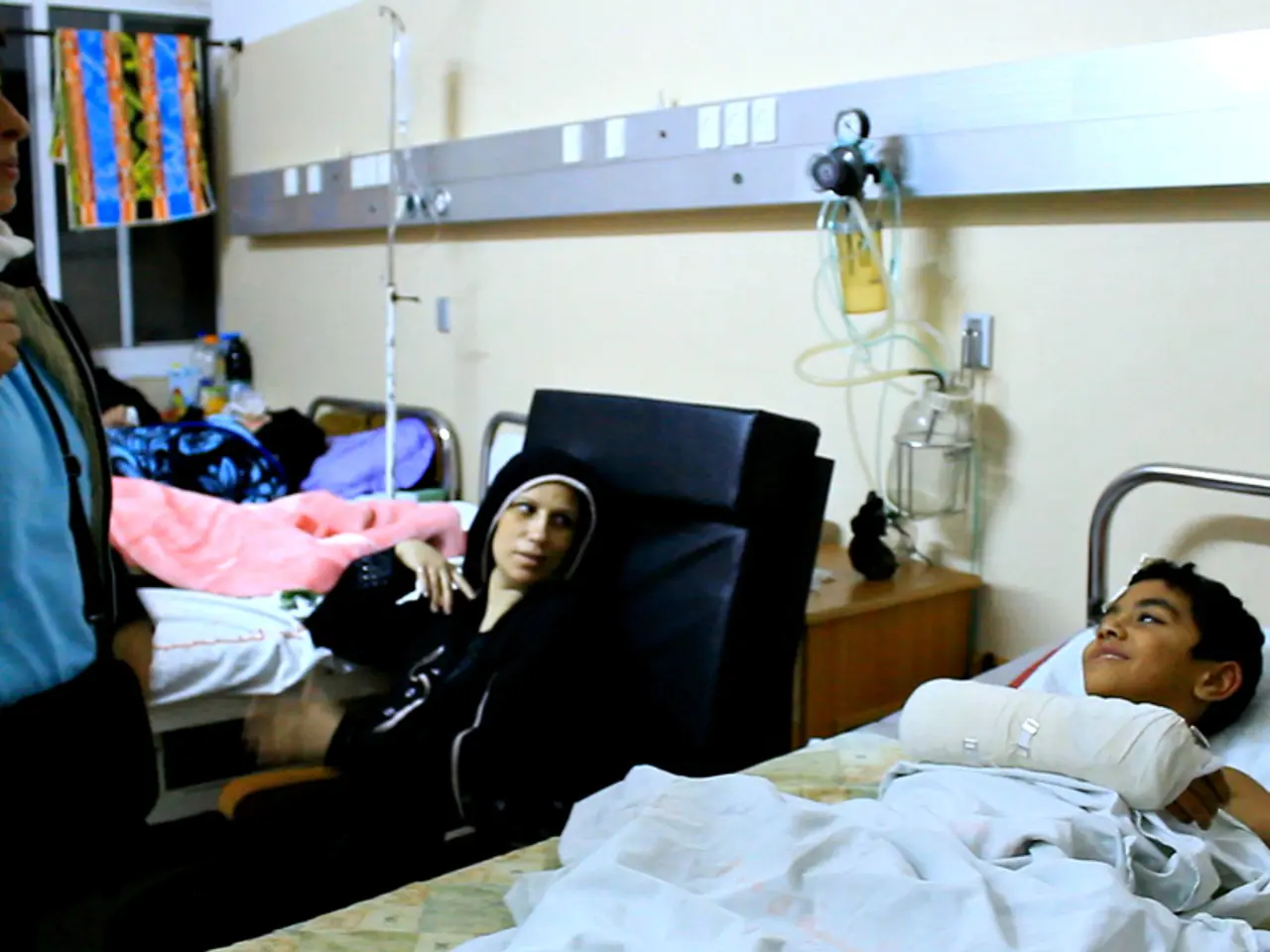Guiding Premature Infant Health: A Parent's Guide to Doctor Appointments
Parents of premature babies often face a unique set of challenges during doctor visits. These visits can be both practical and emotional, requiring careful navigation to ensure the best possible care for their little ones.
## Common Challenges
One of the primary concerns is the increased risk of infection. Premature babies have immature immune systems, making them more susceptible to viruses and bacteria. To minimise exposure, it is crucial to limit unnecessary visits, avoid crowded waiting areas, and schedule appointments during less busy times.
Feeding and nutrition concerns are another common issue. Preemies often have feeding difficulties, leading parents to worry about whether their baby is getting enough nutrition and the right frequency of feeds. Transitioning to oral feeding can also be challenging. Working closely with healthcare providers and monitoring the baby's weight gain and wet diapers can help alleviate these concerns.
Respiratory and medical monitoring is essential for premature babies, who are at higher risk for conditions like apnea (breathing pauses). Careful monitoring during and after doctor visits is necessary to ensure the baby's breathing, heart rate, and oxygen levels remain stable.
Emotional and psychological stress is a significant challenge for many parents. Anxiety, guilt, and overwhelm about their baby's health and development are common. Repeated doctor visits, especially when outcomes are uncertain, can heighten this stress. Seeking emotional support through counseling or support groups can help manage these feelings.
Logistical and practical issues, such as arranging reliable transportation and ensuring the correct car seat, can also be challenging. Parents should be proactive in planning for these needs.
## Effective Navigation Strategies
Minimising exposure to illness is key. Scheduling appointments during less busy times, requesting to wait in an examination room rather than a crowded waiting area, and limiting the number of visitors at home can help reduce the risk of infection.
Preparation for feeding and monitoring is also important. Working with healthcare providers to establish a feeding plan and monitor the baby's weight gain and wet diapers can help ensure adequate nutrition.
Staying informed and asking questions is crucial. Taking notes during appointments and not hesitating to ask doctors to clarify medical terms or instructions can help parents understand their baby's condition and care plan, reducing anxiety and empowering them.
Seeking emotional support is essential. Utilising available counselling or support groups for parents of preemies can provide a safe space to share concerns, questions, and experiences with others who understand the unique challenges of having a preemie.
Planning ahead for travel and equipment is also important. Ensuring that your car seat is appropriate for your preemie and has been tested, if required, and arranging for reliable and safe transportation to and from appointments can help alleviate logistical stress.
Communicating with siblings is also vital. Explaining the situation to older children in age-appropriate terms can help them adjust and reduce their anxiety about the family changes.
By addressing these challenges proactively and utilising available resources and support systems, parents of preemies can help ensure their baby receives the best possible care while also taking care of their own emotional well-being.
Practical support can ease the burden on parents, allowing them to focus on their preemie's health and well-being during doctor visits. Talk to your healthcare provider for recommendations on local support groups or communities. Several online platforms and websites offer resources, helplines, and forums specifically for parents of preemies. These groups create a sense of belonging and understanding as you connect with others going through similar experiences.
Emotional support provides a safe space to share concerns, questions, and experiences with others who understand the unique challenges of having a preemie. It is crucial during doctor visits as they can be overwhelming and stressful for parents of preemies.
Advocating for their preemie means parents should actively participate in the decision-making process. During a typical doctor's visit for a preemie, the doctor checks the baby's vital signs, including heart rate, breathing, and temperature. Parents should provide the doctor with accurate information about their preemie's medical history and any current medications or treatments. Building a strong relationship with the doctor ensures that parents feel comfortable reaching out for assistance.
In conclusion, with the right resources, support, and a proactive approach, parents of preemies can navigate the challenges of doctor visits and provide the best possible care for their little ones.
- The challenges faced by parents of premature babies often include increased risk of infection, feeding and nutrition concerns, respiratory and medical monitoring, emotional and psychological stress, logistical and practical issues, and addressing issues related to childcare and family dynamics.
- To minimise exposure and risk of infection, parents should schedule appointments during less busy times, limit unnecessary visits, avoid crowded waiting areas, and ensure any visitors following strict hygiene measures at home.
- Feeding and nutrition plans should be closely followed by working with healthcare providers, monitoring the baby's weight gain, and wet diapers to ensure the baby is getting adequate nutrition.
- Emotional support through counseling or support groups is crucial for managing feelings of anxiety, guilt, and overwhelm caused by the baby's health and development uncertainties.
- Planning for logistical needs such as reliable transportation and ensuring the correct car seat is essential in alleviating stress during doctor visits.
- Communicating with siblings about the situation and addressing their concerns in age-appropriate terms can help them adjust and reduce anxiety about the family changes.
- Educating oneself about medical conditions, health-and-wellness, and science related to the baby's needs can help empower parents to make informed decisions and advocate for their preemie's care during doctor visits.




